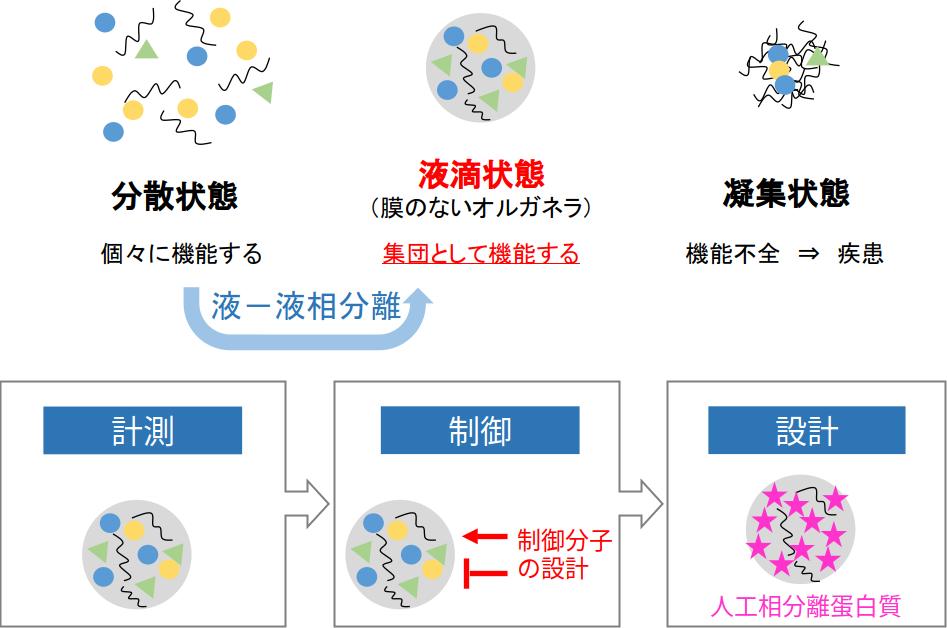Research of Associate Professor Kamagata¶
Unveiling the secrets of proteins from the perspective of molecular dynamics¶
We have independently developed single-molecule fluorescence microscopy and related techniques to analyze the physical properties and functions of DNA-protein complexes from the perspective of molecular dynamics. In recent years, we have been particularly focused on researching liquid-liquid phase separation in proteins and designing molecules that control molecular functions and biological phenomena .
注釈
- Liquid-liquid phase separation:
Liquid-liquid phase separation is a phenomenon in which a liquid does not exist in a homogeneous state, but rather as distinct liquids that do not mix. This phenomenon also occurs within cells, where specific proteins and other molecules come together to form droplet-like structures, playing various roles in cellular functions.
- Importance of liquid-liquid phase separation:
- Understanding cellular structure and function:
Liquid-liquid phase separation plays an important role in forming cellular structures and providing the site for various biological reactions.
- Elucidating disease mechanisms:
It is thought that abnormalities in liquid-liquid phase separation are involved in many neurological diseases and cancers.

Measuring, controlling, and creating the collective functions of proteins¶
Researching liquid-liquid phase separation from three perspectives¶
Measurement:¶
Using our own custom-built equipment, we are conducting detailed observations of the process of liquid-liquid phase separation and the movement of proteins within droplets.
Control:¶
We aim to artificially control liquid-liquid phase separation by designing and synthesizing specific molecules.
Design:¶
We are designing artificial proteins that mimic natural proteins to investigate the properties of liquid-liquid phase separation and to create droplets with new functions.
We are conducting joint research not only with domestic and international researchers but also with pharmaceutical companies.
What this research reveals¶
By elucidating the mechanism of liquid-liquid phase separation, we hope to lead to the development of new treatments for these diseases.
What you can gain from this research¶
You can learn the following:
Protein chemistry: Learn methods of molecular design.
Experimental techniques: Acquire various experimental techniques such as sample preparation and single-molecule fluorescence microscopy.
Data analysis: Learn how to analyze experimental data using custom software and extract meaning from it.
Regarding student guidance:¶
We focus on:
Provide detailed instruction on research methods.
Engage in daily discussions to advance research.
Foster a sense of excitement about the fascinating world of single-molecule proteins that can be visualized through a microscope.